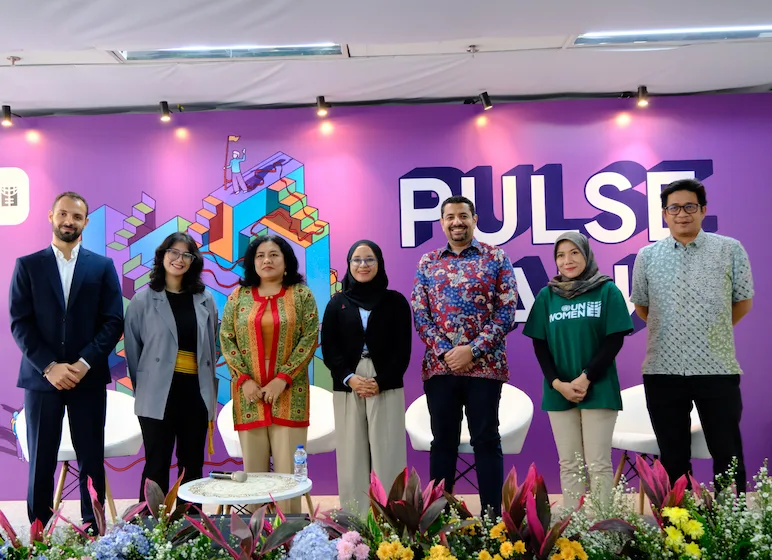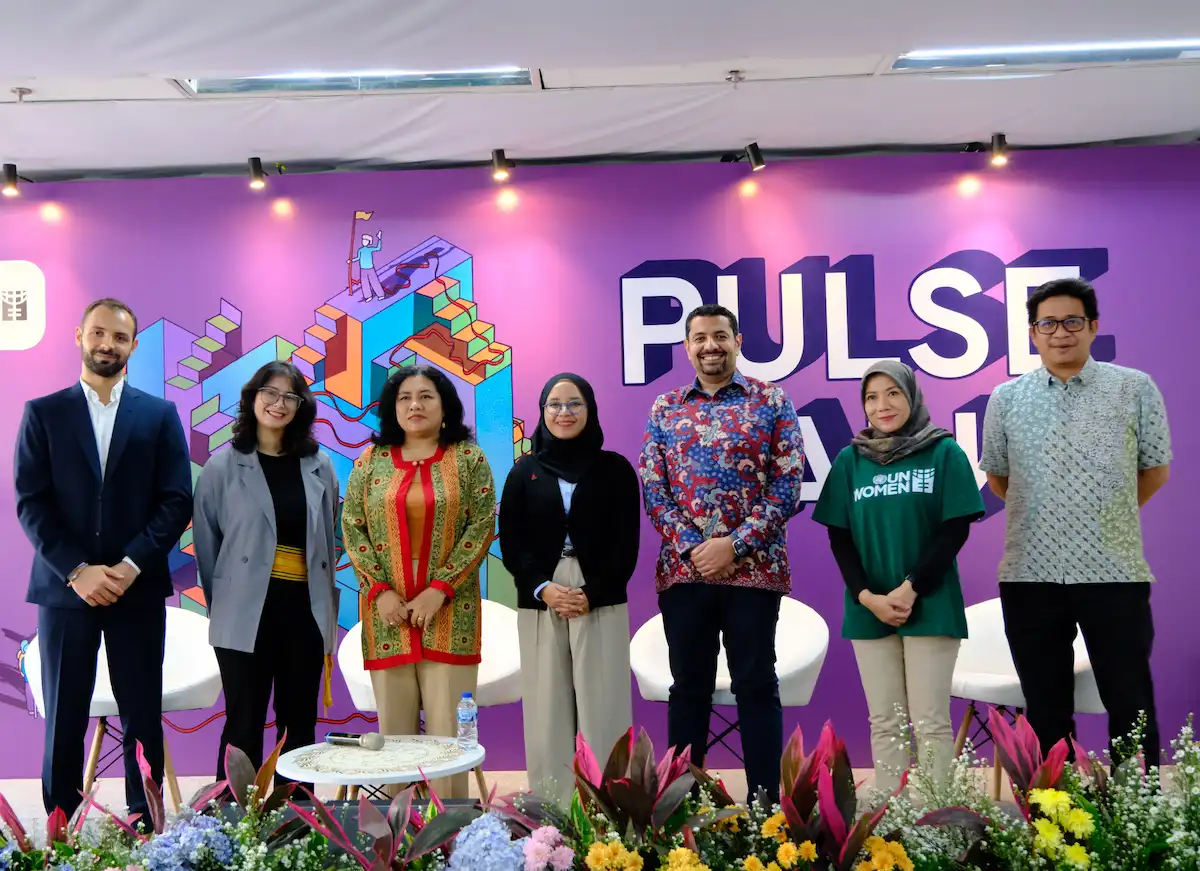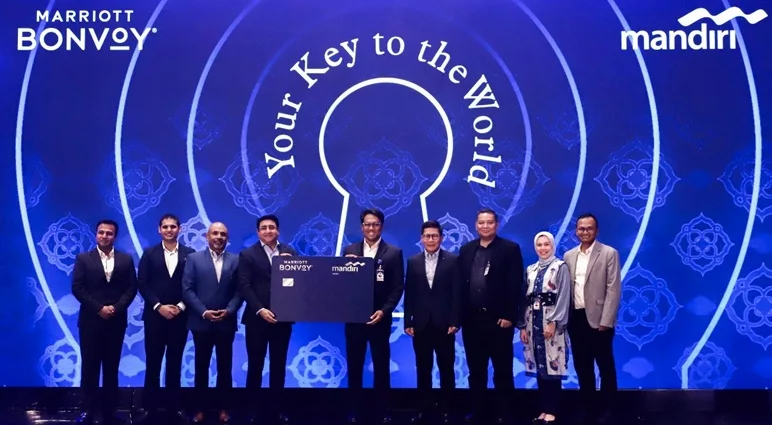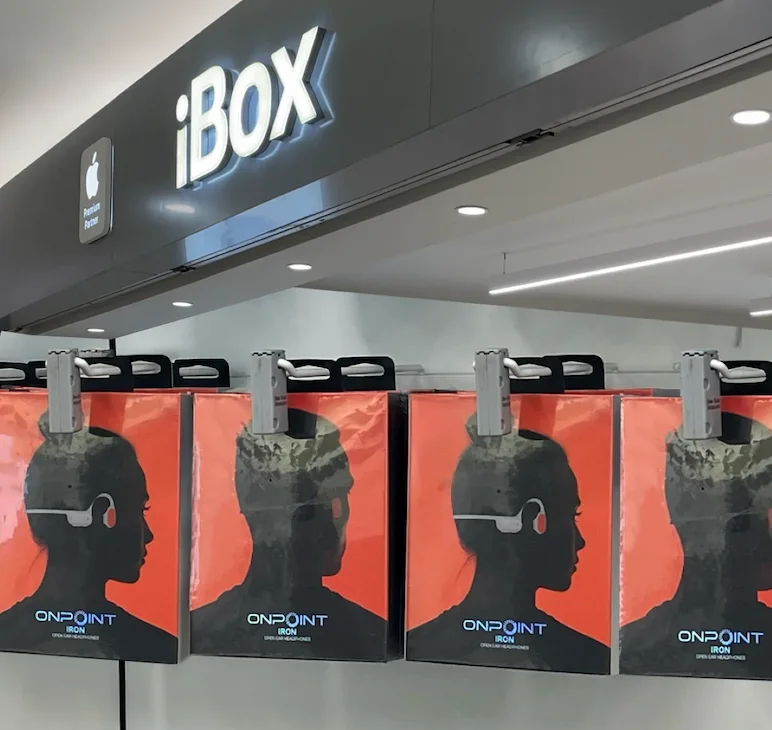
UNOPS, UN Global Pulse, Bappenas, and UN Women Champion
Digital Safety for Women and Girls in Indonesia through Pulse Talk
As part of their commitment to advancing gender equality and inclusive digital transformation, UNOPS Indonesia, UN Global Pulse Asia-Pacific, UN Women Indonesia, and the Ministry of National Development Planning/National Development Planning Agency (Bappenas) co-hosted the third edition of Pulse Talk in Jakarta today. This session, organized under the UN Global Pulse Asia-Pacific initiative, focused on the critical theme: “Creating Safe Online Spaces and Beyond: Addressing Online Violence Against Women and Girls.”
The rapid advancement of technology and digital tools has significantly transformed society, creating new opportunities for women and girls to access and participate in digital spaces, advancing progress toward gender equality. However, this digital progress has also come at a cost, as online platforms have increasingly become spaces where violence against women, girls, and marginalized groups is amplified.
This latest edition of Pulse Talk aimed to understand the dynamics of online violence against women and girls, explore ways to prevent and respond to it, and develop strategies for fostering safe, inclusive digital environments that uphold the rights, safety, and dignity of all users, particularly those most at risk.
The event brought together over 95 participants from government, civil society, international organizations, academia, and youth groups. The discussion focused on deepening the understanding of the scope and impact of online violence, identifying promising local practices and interventions, and strengthening coordinated efforts to build safer, more inclusive digital spaces for everyone. The event was also streamed live on Bappenas’ official YouTube channel, where it attracted around 250 additional viewers, expanding the reach of the conversation beyond the physical venue.
Gita Sabharwal, the UN Resident Coordinator in Indonesia, opened the event by highlighting the urgent need for digital inclusion and empowerment. “Ensuring that girls and women can thrive safely in online environments free of harassment, bullying, and violence is going to benefit the whole of society. This means that not only its victims but everyone else is affected to some extent by online violence,” she stated.
Building on this, Dr. Agung Indrajit, Head of the Centre for Data and Information for Development Planning at Bappenas, emphasized the importance of inclusive dialogue in tackling modern policy challenges. “As we explore the benefits of digital technologies, it is equally important to acknowledge their unintended consequences. We have a clear stance on violence against women and girls, in our mid-term and long-term agenda, and we are firmly committed to reducing its prevalence in Indonesia,” he said, setting the tone for collaborative and forward-thinking discussions.
The dialogue also spotlighted the harmful realities of online abuse. “Technology-facilitated gender-based violence is a violation of human rights,” said Nunik Nurjanah, Programme Specialist at UN Women Indonesia. “It silences women’s voices and limits their ability to fully participate in the digital age.” She stressed that addressing the issue requires coordinated, cross-sectoral responses and prevention strategies that actively engage men and boys to challenge harmful behaviors and norms.
The panel discussions explored the structural and cultural barriers to addressing online violence. Panelists highlighted challenges such as fragmented response mechanisms, insufficient survivor support, and the absence of robust reporting systems.
The Executive Director of SAFEnet, Nenden Sekar Arum, reminded the audience that online abuse constitutes real violence; it silences voices, threatens lives, and pushes women and girls out of digital spaces. This was echoed by Sondang Frishka Simanjuntak, Deputy Chairwoman of the National Commission on Violence Against Women (Komnas Perempuan) who underscored the urgent need for stronger legal protections, coordinated multi-sectoral responses, and efforts to create a safe digital environment for women and girls.
The discussion also spotlighted the contributions of youth-led initiatives, which plays a vital role in addressing online violence against women and girls through their campaigns and continued advocacy to digital platforms and institutions. UN Women National Gender Youth Activist, Humaira Asg, emphasized the importance of fostering civic engagement, peer support networks, providing a safe space for the victims and survivors, and inclusive digital education to address online gender-based violence at its roots.
The dialogue addressed key challenges such as inadequate reporting mechanisms, limited survivor support, and fragmented responses across sectors. It also shed light on the need for a rights-based, survivor-centered approach in designing policy and technological solutions.
“To build truly inclusive digital spaces, we must center the voices and experiences of those most affected by online violence. Today’s dialogue reaffirms that collaboration across sectors is not just beneficial, it’s essential to ensure digital transformation leaves no one behind,” said Marco Scarpetta, UNOPS Project Manager and Gender Equality and Social Inclusion (GESI) Focal Point for Indonesia, as the moderator of this event. Through continued collaboration, UNOPS, UNGP, and its partners remain committed to creating a safer, more inclusive digital future for all.
Before the start of networking session, aimed at fostering future collaboration, among all participants of the event, the Pulse Talk concluded with remarks from Ahmed El-Saeed, Regional Head of UN Global Pulse Asia Pacific: “Addressing violence against women and girls in online spaces is a complex and multilayered issue that requires clear, concerted efforts from stakeholders across multiple sectors to create a sustainable and effective impact. Let’s make sure our online spaces are safe by design.”
Through events like Pulse Talk, UNOPS continues to support the UN Global Pulse Asia-Pacific initiative under the Executive Office of the Secretary-General (EOSG), the Government of Indonesia, and partners in driving inclusive development. By aligning its work with national strategies and the SDGs, UNOPS helps ensure that digital transformation serves as a force for empowerment, not exclusion.




 Juliana Siahaan
Juliana Siahaan
 Jun 19, 2025
Jun 19, 2025






